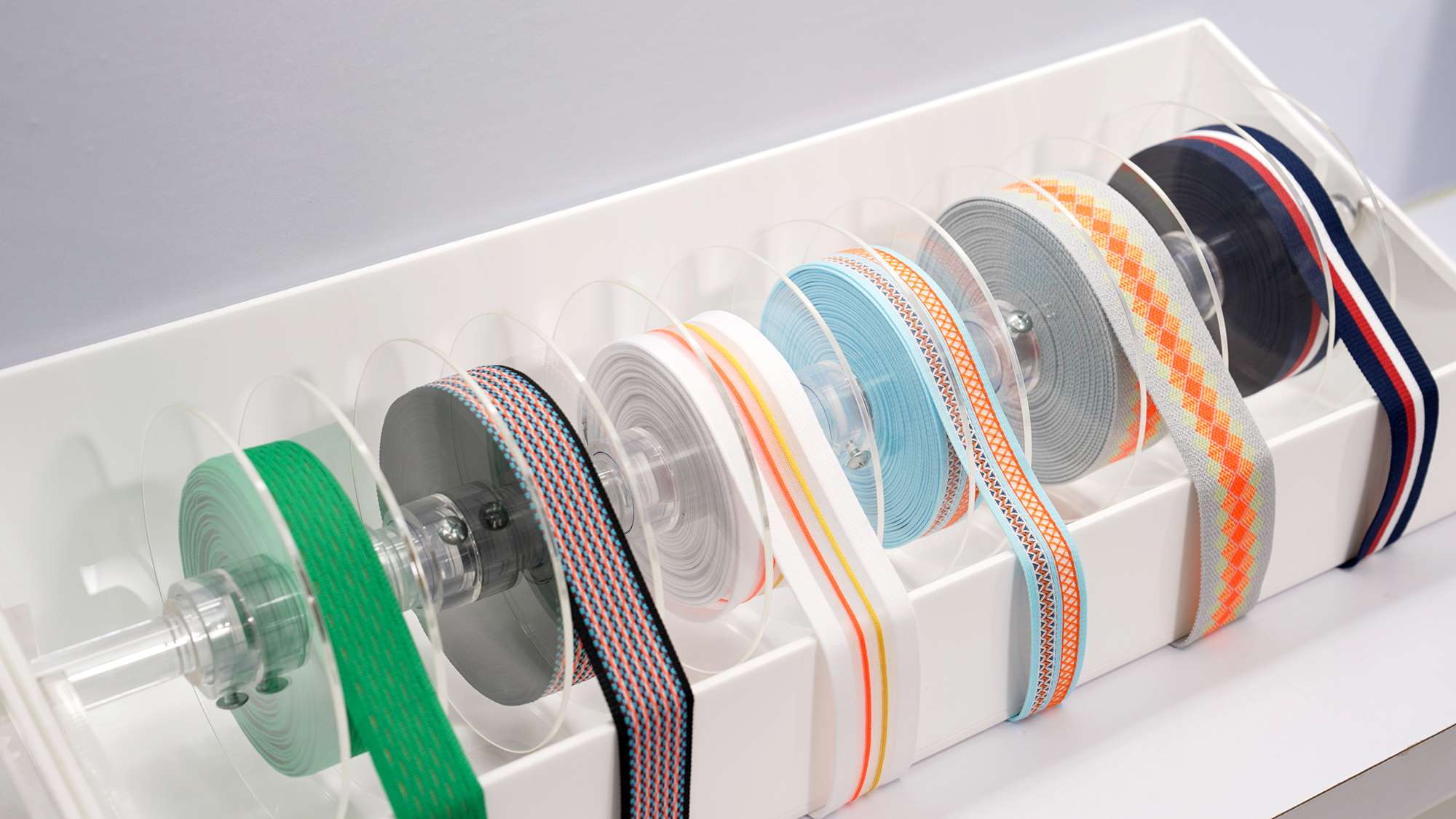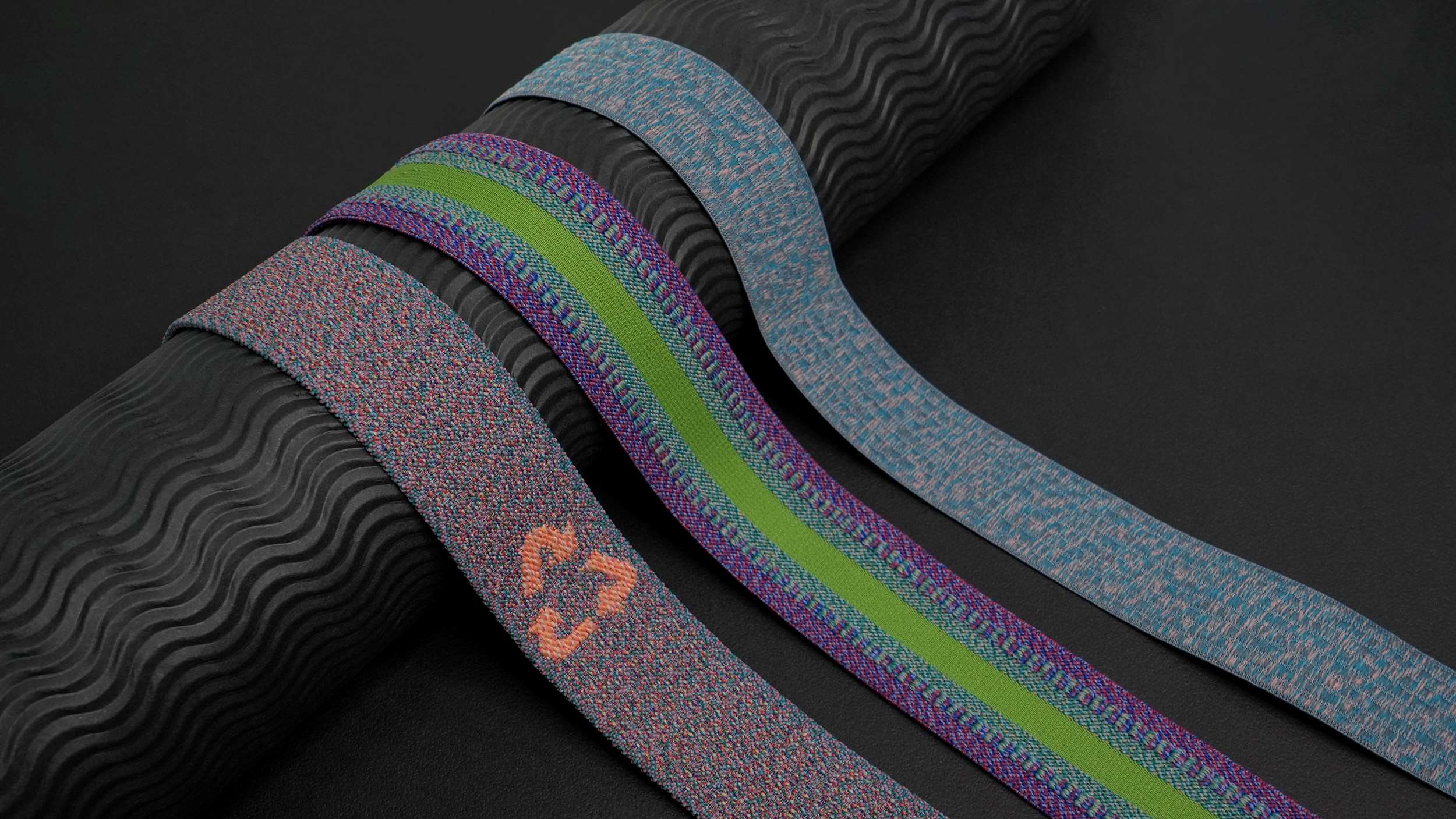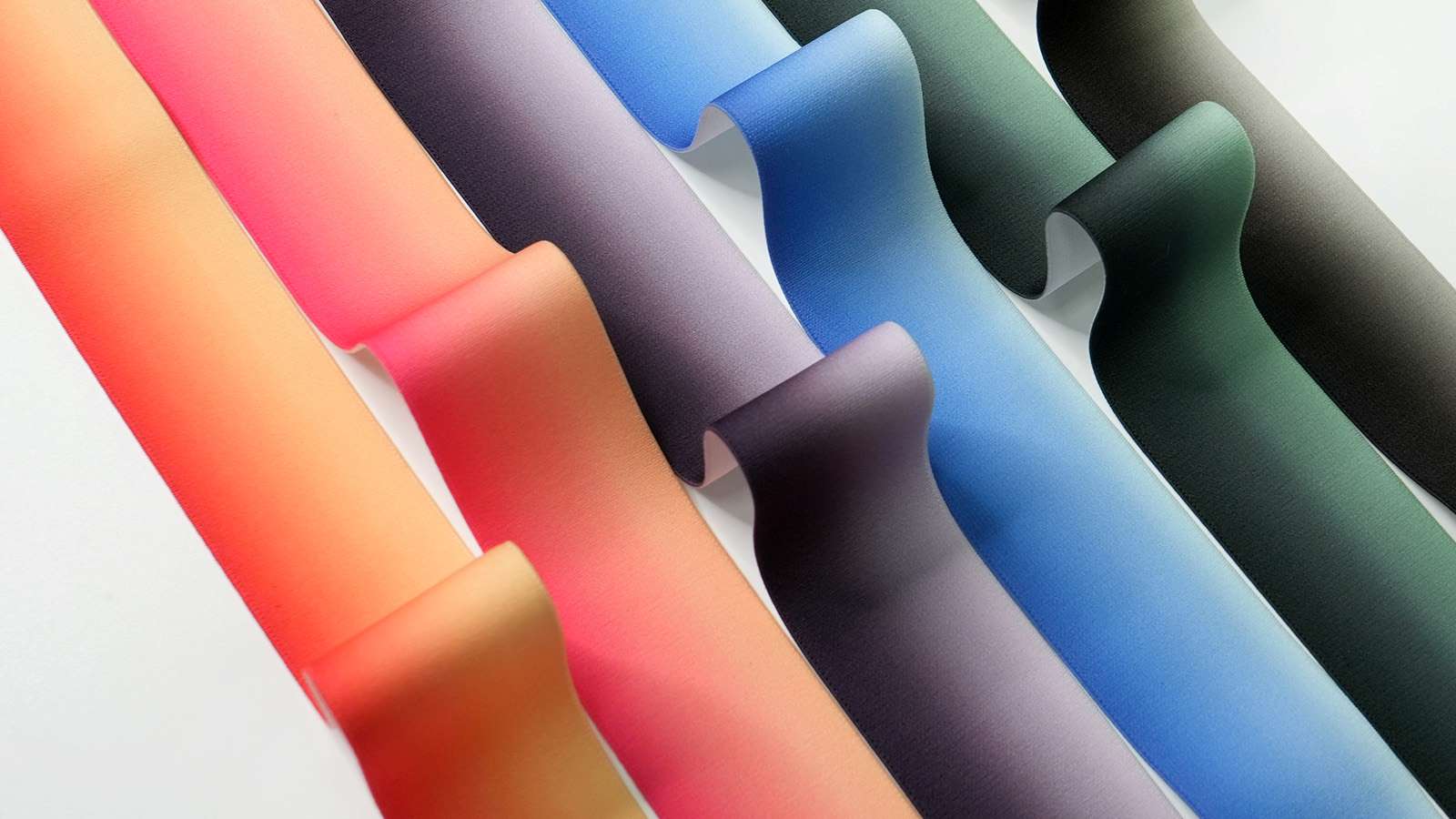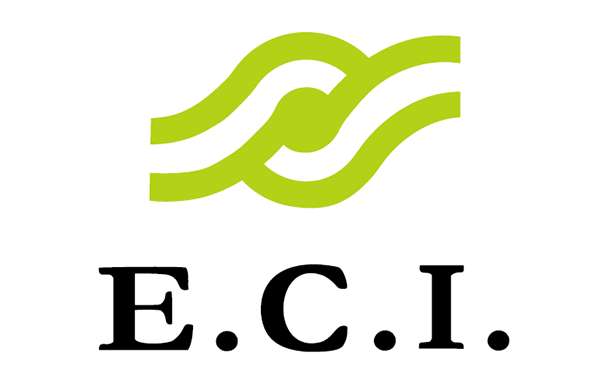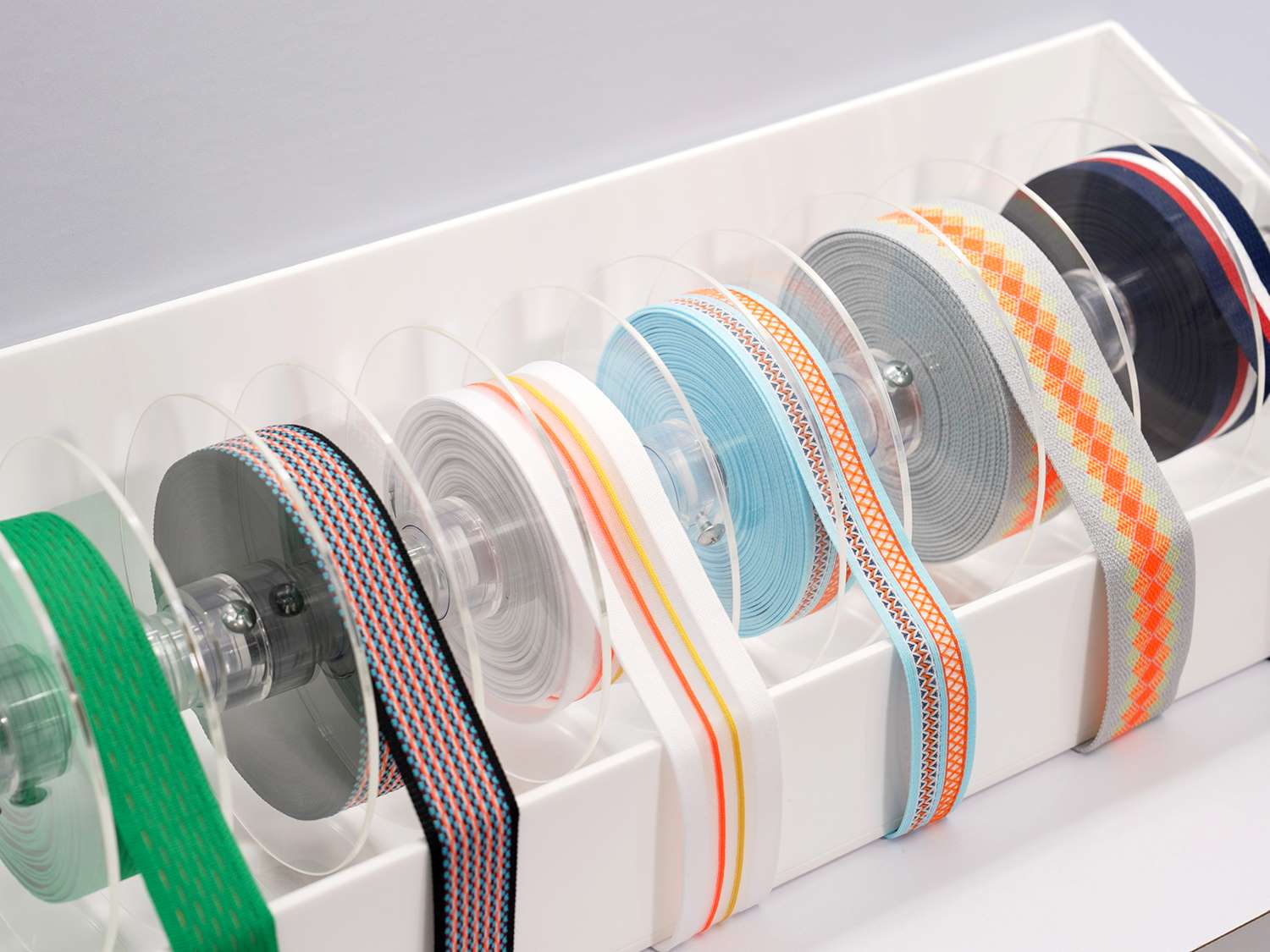
-
Understanding the commercial readiness scale
WTiN’s Commercial Readiness Scale gives an indication of what stage of commercialisation a product is at. It ranges from Emerging: a research stage development; Scaling: the product is being produced on a small but growing scale, and Commercialised: the product is well-established and ready to purchase.


Sponsored by Taiwan Textile Federation (TTF)
Ad. by TITA
ECI Elastic Solutions has embraced the industry’s growing environmental awareness by integrating sustainable materials into its elastic and non-elastic tapes for apparel, lingerie and sportswear. It tells WTiN how it met the challenge.
The textile industry is under pressure from both consumers and regulators to make its products and processes more sustainable and ECI Elastic Solutions has embraced this challenge. The Taiwan-based mill – which makes a diverse range of high-quality elastic and non-elastic tapes for the apparel, lingerie, and sportswear industries – can incorporate 100% recycled materials into its non-elastic bands and 90% recycled materials into its elastic bands.
“We take the initiative to research and utilise recycled materials whenever possible. We use recycled nylon and polyester, which are sourced from yarn suppliers with GRS certification and significant technical expertise,” explains ECI’s senior director Joanne Chen.
Chen says replacing conventional polyester or nylon raw materials with recycled alternatives enables the company to meet brand requirements while maintaining the same product feel and quality.
“This not only supports recycling efforts but also reduces the need to produce new plastics,” she adds.
The company continues to strive for even more sustainability, working towards the goal of achieving 100% recyclability in its elastic tape.
“Our commitment to sustainability extends to all our woven tapes, showcasing our dedication to reducing our environmental impact without compromising on product excellence,” says Chen.
Sourcing recycled materials made from post-consumer textiles is a challenge. ECI says there is insufficient infrastructure and capacity for collecting, sorting, and processing large quantities of textiles in a cost-effective manner.
“Waste from textile manufacturing is currently a significant environmental issue, but it is also a potential resource,” says Chen. “The factories of the future will achieve resource circularity by recycling and reusing waste, reducing the demand for virgin materials, and simultaneously reducing their environmental impact.”
The company recently devised a solution in the form of the product Fancy Yarn: a product made from 100% recycled yarn to address the issue of excessive inventory and waste in the textile industry.
“Suppliers often face challenges such as surplus materials due to inaccurate forecasts and overproduction. These materials, although perfectly usable, end up increasing costs and harming the environment when discarded. Fancy Yarn is our solution to this problem,” says Chen.
“By twisting surplus inventory yarns – composed of recycled polyester and nylon – into a single, innovative yarn, we transform what was once scrap into a valuable resource. This not only reduces waste but also enhances the economic efficiency of our operations.”
The challenge of working with biobased ingredients
ECI also works with renewable ingredients wherever possible. For example, the company is integrating natural rubber latex into the production of certain elastic tapes, particularly in products that require internal applications, such as bra straps, decorative bands, and waistbands. Natural rubber is a desirable choice because it is durable and can enhance the aesthetic appeal and support of garments.
But biobased materials also come with challenges.
“Specific conditions are often required for biobased materials to decompose properly and, when mixed with other non-degradable materials, their effectiveness can be compromised,” adds Chen.
“Despite these hurdles, we are committed to considering and adopting biobased materials as part of our ongoing efforts to enhance sustainability.”
Chen envisages the Taiwanese textile industry sourcing even more environmentally friendly products in the years to come.
“Organic biomaterials such as organic cotton, bamboo fibre, and regenerated fibres not only have less environmental impact but may also offer better performance and comfort. They will become important material choices in the future,” she says.
ECI continues to collaborate with its suppliers and keep on top of technological advancements to incorporate these eco-friendly options into its products when it’s feasible and not to the detriment of quality.
“We are committed to innovative product development, integrating innovation and quality into every strand of tape,” says Chen.
Running a greener factory
The mill’s commitment to sustainability extends to its processes as well as the materials it works with.
To reduce its carbon footprint and facilitate a cleaner production process, it converted its dyeing facilities from coal to natural gas in 2022.
It also upgraded its mechanical equipment including transitioning from diesel-powered forklifts to electric ones – a move designed to offer the dual benefits of enhancing workplace safety, as well as reducing environmental damage.
“Furthermore, upgrading our yarn-covering machines to include inverters enables more energy-efficient operations, gradually reducing energy consumption,” explains Chen.
The mill employs natural gas wastewater treatment processes and minimises its water usage by adopting closed-loop dyeing systems and water recycling technologies.
Wastewater generated from dyeing processes is put through water treatment systems, which convert it into reusable water before discharge to reduce environmental pollution.
“Furthermore, we use eco-friendly dyes and auxiliaries to minimise the use of toxic chemicals, thus reducing harm to the environment and workers’ health,” says Chen.
“Moreover, we optimise dyeing formulations and process parameters, which minimises waste and emissions.”
The company cites its numerous international certifications as affirmation of its dedication to eco-friendly practices and predicts that sustainability and recycling will become even more critical strategies for factories.
Technology for efficiency and environmental benefits
Digitisation and automation also help to meet environmental and efficiency targets and ECI believes these approaches will be increasingly applied in the textile industry as technology advances. For example, digitalisation enables the remote monitoring of equipment status and production progress, so the mill can collect and analyse data, and adjust energy use in real-time. This contributes to improved energy efficiency, reduced energy waste, and promotes sustainable energy development.
ECI will continue to enhance its automation equipment to replace the repetitive tasks currently performed by human labour.
“Digitalisation will enable more efficient production processes and resource utilisation, while reducing production costs. It will also promote innovation in design and manufacturing, making products more personalised and aligned with customer needs,” says Chen.
She highlights the smooth operation of the company’s factories in Taiwan, Vietnam, and China, as an example of efficiency: each facility operates as a fully integrated production line, from pre-production to yarn dyeing, weaving and final product testing.
“Our strength lies in our dedication to quality improvement, starting from the raw materials and continuing through research and innovation, all while maintaining strict quality control throughout the production process.”
Have your say. Tweet and follow us @WTiNcomment



